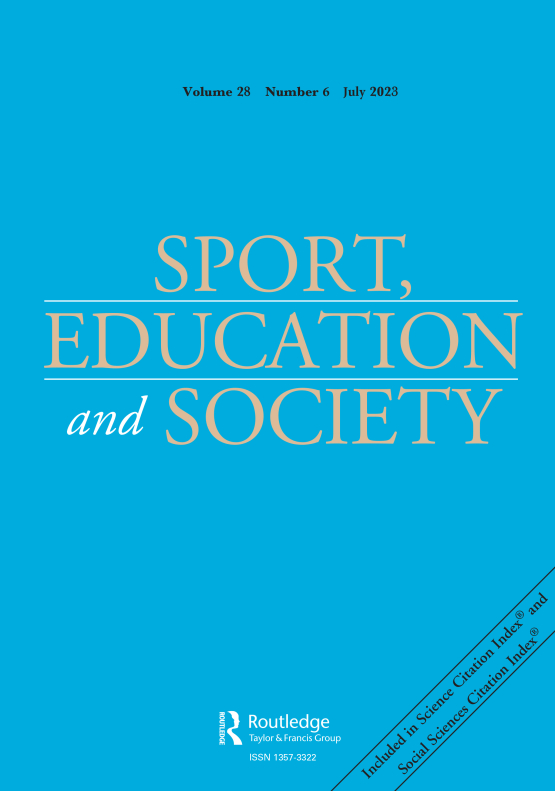Submit a Manuscript to the Journal
Sport, Education and Society
For a Special Issue on
Border Crossings in Health and Physical Education: Policy, Curriculum and Pedagogy
Abstract deadline
Manuscript deadline

Special Issue Editor(s)
Julie Stirrup,
Loughborough University
j.l.stirrup@lboro.ac.uk
Shirley Gray,
Edinburgh University
shirley.gray@ed.ac.uk
Oliver Hooper,
Loughborough University
o.r.hooper@lboro.ac.uk
Border Crossings in Health and Physical Education: Policy, Curriculum and Pedagogy
Historically, scholars have advocated for critical perspectives in Health and Physical Education (HPE), encouraging more creative and inclusive ways of thinking about and doing PE. Despite this, critical perspectives and approaches remain on the margins (Tinning, 2019) and HPE continues to be a rather exclusive space, primarily for those young people who have the physical capacities to engage in competitive sports (Redelius et al., 2009).
The aim of this special edition is to explore the potential of crossing geographical borders within and between countries for transformative professional learning – fostering critical thinking and enactment around HPE curricula, pedagogy and assessment. This contrasts with siloed thinking, which limits capacities for problem solving (Klein, 2004), how deeply we understand education (Tinning, 2015), and restricts what teachers turn their attention to, constraining their opportunities to think ‘outside the frame’ (Evans, 2014, p. 55-56). Several researchers before us have advocated for border crossing as a stimulus for change through, for example, sharing of thought, practice and resources (O’Connor and Jess, 2020; Penney et al., 2009). Furthermore, cross-border research can uncover similarities and differences across contexts, which can lead educators to greater awareness and understanding of the complexities inherent within contemporary education (Andrews & Mycock, 2007) and thus has the potential to enhance educational systems and ask questions that support the development of future policy (Wyse et al., 2012).
Inspired by these ideas, we see the potential of border crossing to open up new and critical ways of thinking, looking to expand the space of possibility and new futures for HPE. This collection of papers will broaden our understanding of HPE with the potential to interrupt the normative thinking; develop our understandings of how cross border research might support progressive social change.
This special issue is particularly focused on building a collection of research that can provide a grounded and accessible insight into the potential of cross border learning and developing change in PE.
Submission Instructions
We aim to bring together a diversity of voices from health and physical education who want to extend empirical and pedagogical understandings of cross border learning. We are especially interested in innovative and/or creative research and empirical examples that explore the potential of cross border learning practices in schools, physical education teacher education (PETE) settings and or the impact on teachers and learners.
Whilst we are keen to have a broad focus for this special issue, some suggested topics include:
- Curriculum reform and learning across borders
- HPE agenda/approaches across different context
- Cross border learning as a lens to explore issues of equity and inclusion
- Assessment approached across borders
- Cross border/context dialogue and teacher learning
- Engaging learners/students in cross border discussions on HPE learning
- Cross border learning and professional development in HPE – the role of PETE/ITE
- Innovative research approaches for engaging in and exploring cross border learning
- Theoretical insights for cross border research (curriculum/teacher learning/transformative practice)
To be considered for the Special Issue, we invite you to submit a 300-word abstract to the lead Guest Editor by 16 December 2024.

